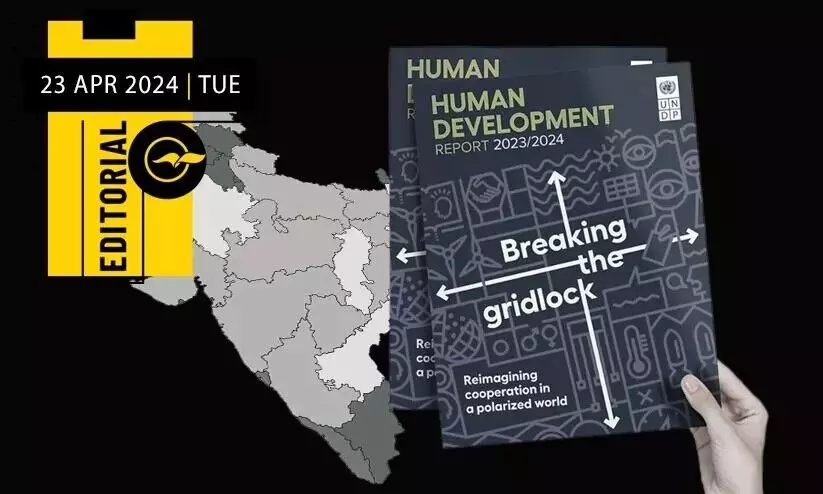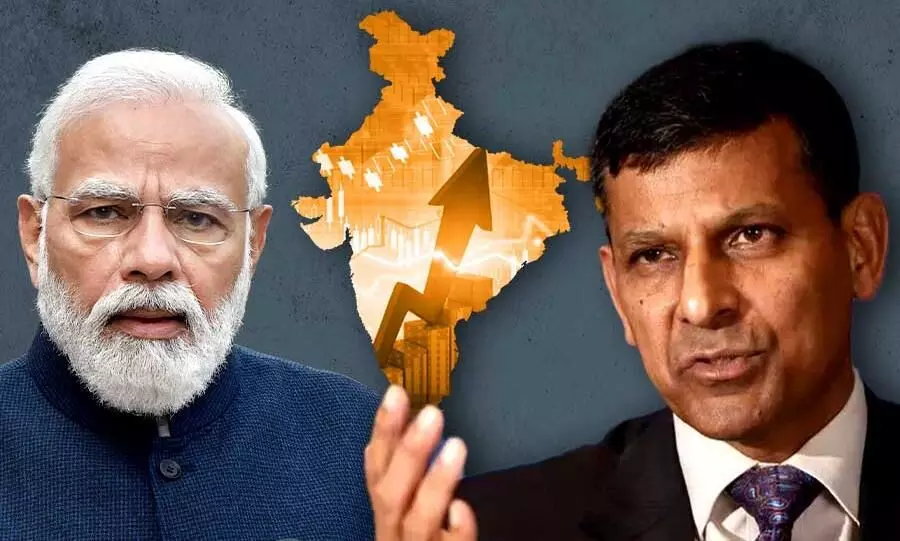
Warnings in the Human Development Index
text_fieldsThe Human Development Index (HDI), published annually by the United Nations Development Programme (UNDP), is an indicator of the social and economic development of peoples across countries beyond its economic progress. The report containing the 2022-23 index was released last month, but there has not been enough discussion or evaluation in the country, possibly due to the upcoming elections. India's ranking improved from last year to 134th among 193 countries, which made some headlines. However, it is important to note that this is still lower than that of some other countries comparison with which would be relevant: China ranks 75th and Sri Lanka 78th. Human development is a ranking based primarily on a nation's health, education, and average income. While political leaders often tout overall gross domestic product (GDP) growth and economic size (in trillions of dollars), the incompleteness of not linking it to population size is often overlooked. On one hand is the distortion of ignoring the fact that the economic transactions of 140 crore people living in the country would be immense in terms of both domestic production and consumption. On the other hand, the extent to which economic activity has improved the well-being of people's lives and human development is not being assessed. That apart, the UN Development Programme (UNDP) 2022-23 report was aptly titled 'Eliminating Stagnation; Reimagining Cooperation in a Polarized World' to address the crisis of people not becoming beneficiaries even when democratic systems are in place.
While all 38 member countries of the Organization for Economic Cooperation and Development (OECD), a group of developed nations, improved their Human Development Index (HDI) scores in 2023 compared to 2019, 18 out of 35 Least Developed Countries (LDCs) that saw their indices decline in 2020 and 2021 have yet to recover to their pre-2019 (pre-COVID) levels. This is most evident in Afghanistan and Ukraine, countries that have experienced war crises. Afghanistan has reverted by ten years, while Ukraine's index has plummeted to its lowest level since 2004. While wealthy nations make significant progress on the index, half of the extremely poor are moving backwards. This means that this is not caused by external factors alone. The UN report also highlights that the stagnation caused by the growing polarization and distrust in the political arena needs to be addressed immediately. The most alarming fact is that the gap between rich and poor countries has widened in the report period even as inequality has decreased in the previous two decades. For example, it can be said that 40% of global trade takes place between three or fewer countries. The market capitalization of the three largest technology companies in 2021 exceeded 90% of the total domestic product of countries. Instead of the benefits of interdependence through globalization, the world is becoming more polarized. This means that cooperation in addressing climate change, digitization disparities and poverty is disappearing as the world becomes more polarized, and failures to address imbalances create barriers to human development. As a result, trust in both people and institutions is declining on a global scale.
According to a global survey cited in the report, nine out of ten people support democracy. However, more than half of those surveyed support the kind of leadership which pose a threat to the democratic process. Nearly half of the survey participants in the survey felt they have little control over their own lives. Additionally, two-thirds of respondents felt unable to influence the actions of their governments. This paradox is leading to a trend of countries becoming more inward-looking, which in turn is eroding the trust and cooperation necessary for globalization. This is particularly concerning in light of the record-breaking temperatures of 2023 and the need for international cooperation to address climate change and to regulate impact of potential disruptions emerging from new technologies like AI. Both developed and developing countries must take these challenges seriously and work together to address them, rather than acting as if they are not affected. Only by eliminating inequalities and imbalances and working towards the common goal of human well-being can we move forward. It is also important to remember that the boastful rhetoric of political leaders alone will not suffice to address these challenges.


























